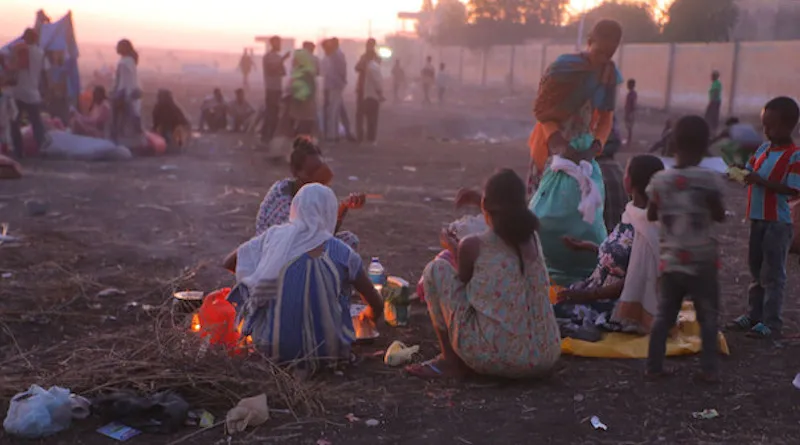
On August 26, 2022, there was the bombing by Ethiopian federal troops of a primary school in Mekelle—the capital city of the Tigray province, which had a population of about 500,000 before the fighting began. It is not clear if the attack brings to an end some five months of relative calm in the war-torn Tigray or not.
There was a non-negotiated ceasefire but no negotiations between representatives of the federal government and the Tigray Province. Many of the former officials of the Tigray Province have fled to other countries. Thus, it is not clear who is in a position to negotiate for the Tigray factions were negotiations to be undertaken.
Ethiopia is a federal republic structured on the basis of 10 provinces. Each province is named after the major ethnic group within the province. However, no province is populated exclusively by one ethnic group. Through history and economic development people have moved to areas beyond their original “homeland”.
People from a “foreign” ethnic group can be made to feel as “second class citizens”, and there may be violence used against them in times of tensions.
Prior to 2018 when the current federal government led by Abiy Ahmed came to power, the Tigray People’s Liberation-led government played an important role in national politics for three decades.
Tensions between the federal government and the Tigray authorities came to a head in September 2020 when elections for the parliament of Tigray were held against the wishes of the federal government who wanted all elections postponed due to the COVID-19 health crisis.
Thus, the central government said that the elections were “illegal”. The Tigray authorities replied by saying that they were claiming independence and wanted to leave the Ethiopian federation, a possibility, depending on one’s interpretation of the Ethiopian constitution.
Federal troops started moving into Tigray. The fighting in Tigray became more complex each day as Ethiopian Defence Forces, Eritrean Defence Forces and ethnic militias fought Tigrayan forces. There was a build-up of Sudanese government forces on the Ethiopian-Sudan border, where some 50,000 refugees have fled into Sudan.
The UN High Commissioner for Human Rights, Michelle Bachelet, has spoken out of the human rights violations involving mass killings, rapes, and abduction of civilians when presenting a report to the Human Rights Council on November 3, 2021. However, she stressed the difficulties of collecting information and the impossibility to visit certain areas where massive violations were said to have taken place.
There are few signs of a willingness to deal with the deep consequences of the armed conflict, especially the consequences on food supplies. The Association of World Citizens, knowing the fragile nature of the confederation of provinces which make up the Ethiopian State had made a first appeal for a ceasefire and negotiations in good faith in November 2020 shortly after the fighting had started.
Appeals have also been made by United Nations and the African Union officials. Strong measures for conflict resolution are needed if a new storm of fighting is to be avoided.
